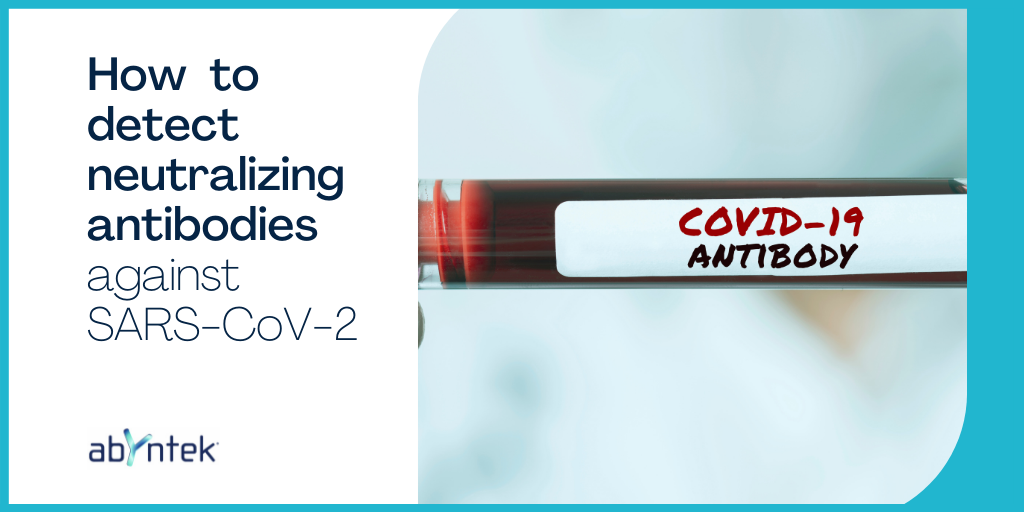Neutralizing antibodies are those that block the interaction between the SARS-CoV-2 virus and the host cells preventing infection, which is why they are of great relevance in research against COVID-19. Most neutralizing antibodies to SARS-CoV-2 react with the receptor-binding domain (RBD) of the Spike protein, which is the one that binds to the cell surface receptor ACE2.
Neutralizing antibodies are also tools of great interest in research studies against COVID-19, since they can be used as reference antibodies in neutralization tests or in in vivo assays, with direct application in human immunity studies and vaccine development.
How do neutralizing antibodies work?
Neutralizing antibodies (NAbs) are the subpopulation of antibodies that reduce the infectivity of a virus by binding to surface epitopes of viral particles and thus blocking their entry into cells. Neutralizing antibodies carry out their protective function in two steps:
1. By preventing the virus from binding to its receptor on target cells
2. Causing lysis of viruses by opsonization or activation of the complement system, mediated by the constant region of antibodies
How to detect neutralizing antibodies against SARS-CoV-2
One of the techniques that makes it easier to detect the presence of neutralizing antibodies or even quantify them is the ELISA test. The main advantages compared to other techniques (for example, those that use cell cultures) are the speed in obtaining the results (few hours versus days) and that it does not require sterile conditions to be carried out.
The most common ELISA assay format for the detection of these antibodies is the competitive ELISA. The plates are generally coated with recombinant ACE2 receptors and then labeled recombinant RBD protein is incorporated on them (or vice versa, the plates are coated with recombinant RBD and labeled ACE2 protein is added), to later add the sample to be analyzed. The neutralizing antibodies present in said sample will displace the ACE2-RBD binding, reducing the intensity of the signal.
ELISA tests to detect neutralizing antibodies against SARS-CoV-2 are being of great help in research projects against COVID-19, enabling the detection of neutralizing antibodies against SARS-CoV-2 in biological samples, with special relevance in immunity studies and vaccine development.
ELISA kits to detect neutralizing antibodies against SARS-CoV-2
Finally, we leave you a compilation of the most used ELISA kits for the detection of neutralizing antibodies against SAR-CoV-2:
| Ref. | Reactivity | Sample type | Assay type | Detection type |
| MBS355919 | Human | Serum/Plasma | Competitive ELISA | Qualitative |
| MBS7135967 | Human | Serum/Plasma | Competitive ELISA | Qualitative |
| DEIASL055 | Human | Serum/Plasma | Competitive ELISA | Qualitative |
| DEIAWZ021 | Human | Serum/Plasma | Competitive ELISA | Qualitative |
| EKC42804 | Human | Serum/Plasma | Competitive ELISA | Qualitative |
| KA6111 | Human/Mouse | Serum/Culture supernatant | Indirect ELISA | Quantitative |
NEWSLETTER Don’t forget to subscribe to our newsletter here to receive weekly updates from this research and antibodies blog!




